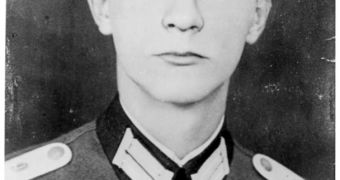The news just broke that, this past Friday, the last surviving anti-Hitler plotter passed away while at his home in Munich. At the time of his death, Ewald-Heinrich Von Kleist was 90 years old.
By the looks of it, Ewald-Heinrich Von Kleist grew to vehemently oppose both Hitler and his plans for Europe because of his father, who did not really see eye to eye with the Fuhrer and with his followers and who later encouraged his son to take action against them.
Sources report that, when he was just 18 years old (i.e. in 1940, to be more precise), Kleist decided to join the German army as an infantry officer.
While serving in the German army, Ewald-Heinrich Von Kleist became acquainted to army officer and aristocrat Claus Graf Schenk von Stauffenberg, who later asked him whether or not he might be willing to collaborate with him and several others in an assassination plot aimed at taking down Hitler.
Despite the fact that almost all of the plans that were supposed to translate into Hitler's being killed were pretty much suicidal ones, Kleist's father encouraged him not to hesitate to carry out such a task.
“Yes, you have to do this,” the anti-Hitler plotter was reportedly told by his father when informing him of his decision to become actively involved in the ongoing efforts to end the Nazis' reign.
On one occasion, Ewald-Heinrich Von Kleist wished to wear a suicide vest under his military clothes, and use it to kill Hitler when the later came to inspect his and his fellow officers' uniforms.
As well as this, the anti-Hitler plotter agreed to carry a briefcase filled with explosives at a meeting at which the Fuhrer was supposed to be present.
However, Ewald-Heinrich Von Kleist never got the chance to carry out either of his plans, seeing how Hitler's working agenda kept changing too often for him and other plotters to be able to keep up with it.
Following Claus Graf Schenk von Stauffenberg eventually managing to detonate one such briefcase in front of Hitler on July 20, 1944, yet failing to kill him, Ewald-Heinrich von Kleist started being looked at with suspicion by Hitler and his supporters.
As a result of this, he was sent to the Ravensbrück concentration camp. Interestingly enough, he was later released and made to once again serve in the army.
Ewald-Heinrich Von Kleist's father was unfortunately killed by the Nazis.

 14 DAY TRIAL //
14 DAY TRIAL //